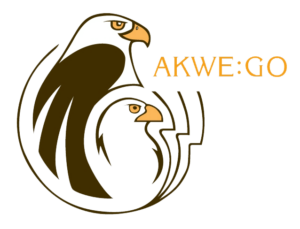
The Akwe:Go Urban Indigenous Children’s Program provides support, tools and healthy activities targeted to urban/rural and off-reserve Indigenous children ages 7-12, with a focus on “at-risk” children. Programming includes client based and participant based activities. The program builds upon and fosters children’s inherent ability to make healthy choices. Additionally, Akwe:Go provides workers for high risk children ages 7 – 12 who require one-on-one interaction.
The program objectives for the Akwe:Go Urban Indigenous Children’s Program and Akwe:Go High-Risk Program are to provide:
- General social supports
- Healthy eating and physical development supports
- Institutional Interventions (e.g. education, justice)
- Violence prevention supports
- Support services for children with disabilities
- Supports for children in care, or who at risk of being in care of a children’s aid society
Program activities as per objectives:
- Assisting children and youth development through increasing life skills, safety awareness and anti-violence training
- Support circles, “one-to-one” and peer counselling
- Addressing inter-related health impacts of poverty, diabetes and childhood obesity.
- Culturally appropriate services to adoptive, foster parents and customary caregivers of Indigenous children and/or youth
- Teachings and learning activities that foster and increase self-esteem and promote healthy behaviors and relationships
- Support for urban Indigenous children and youth through institutional interventions, such as providing school suspension supports, homework help, linkages to tutor and/or justice prevention and intervention activities
- After school activities for children and youth with FASD, as well as parent support
Activities may include:
- Akwe:Go crafts: an evening of crafts such as painting, beading, traditional crafts.
- Kids in the kitchen: weekly cooking sessions to provide the foundation for life-long healthy eating.
- Drop in Center: providing a safe and structured environment for children to relax, play games and complete homework. Snack and drinks are provided.
- Homework clubs: a place for children to work in a supportive environment out of school hours.
- Gym/Nutrition programming: Sports, team building activities and lessons of food nutrition such as unhealthy foods and the five food groups.
Target Audience
Urban Indigenous Children and Youth aged 7 – 12 years of age
Client Capacity
15 minimum- 20 maximum

